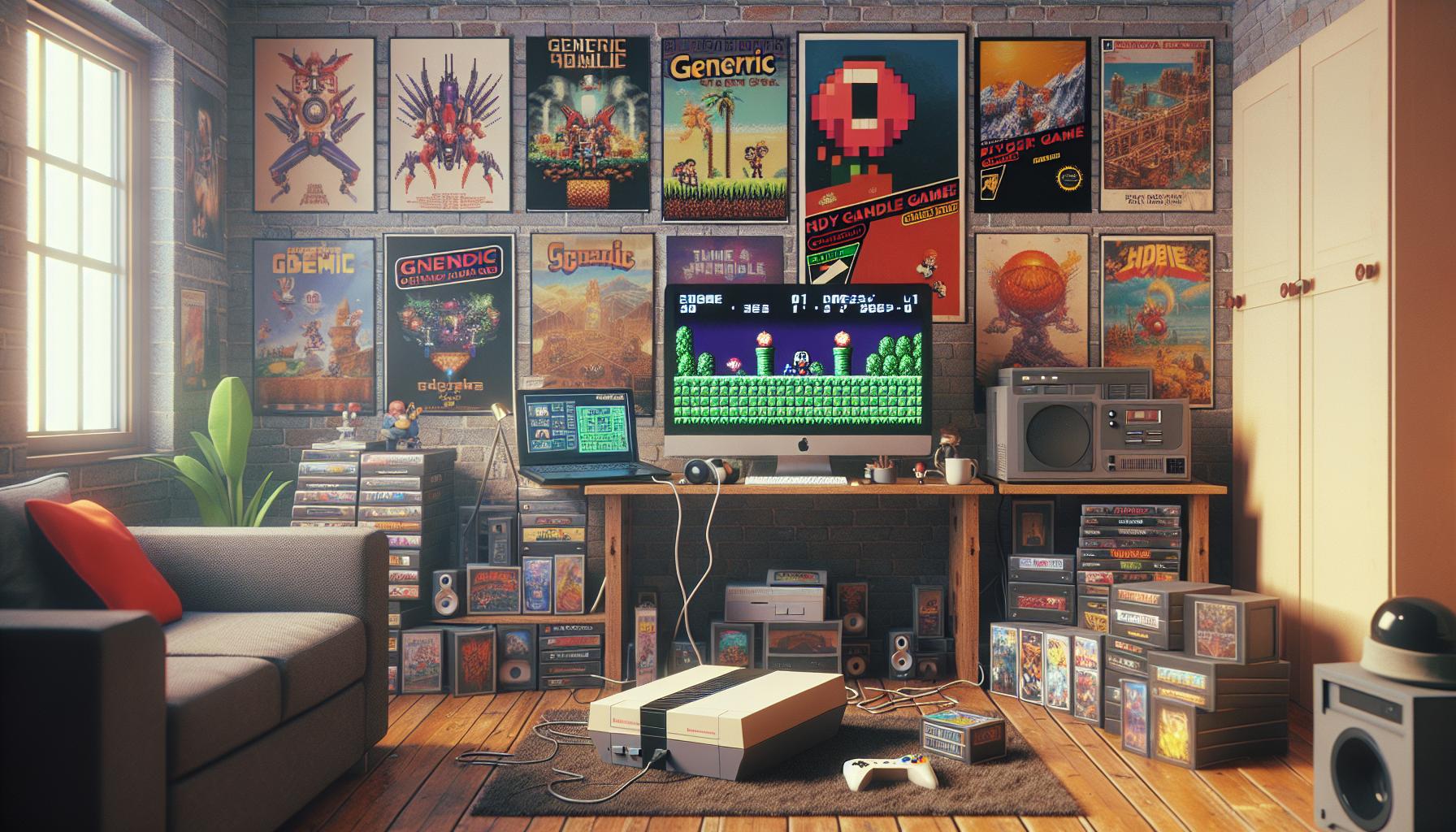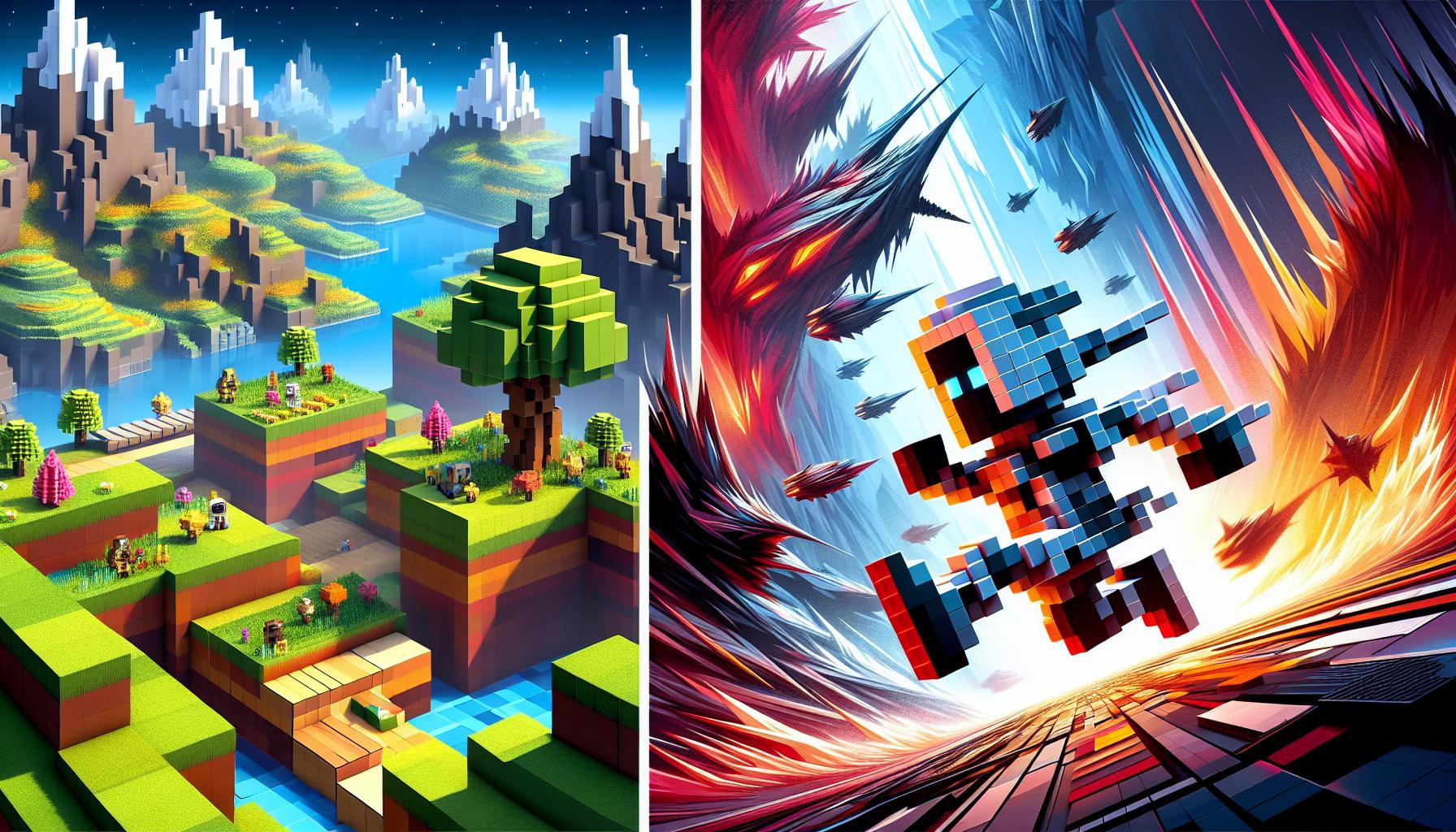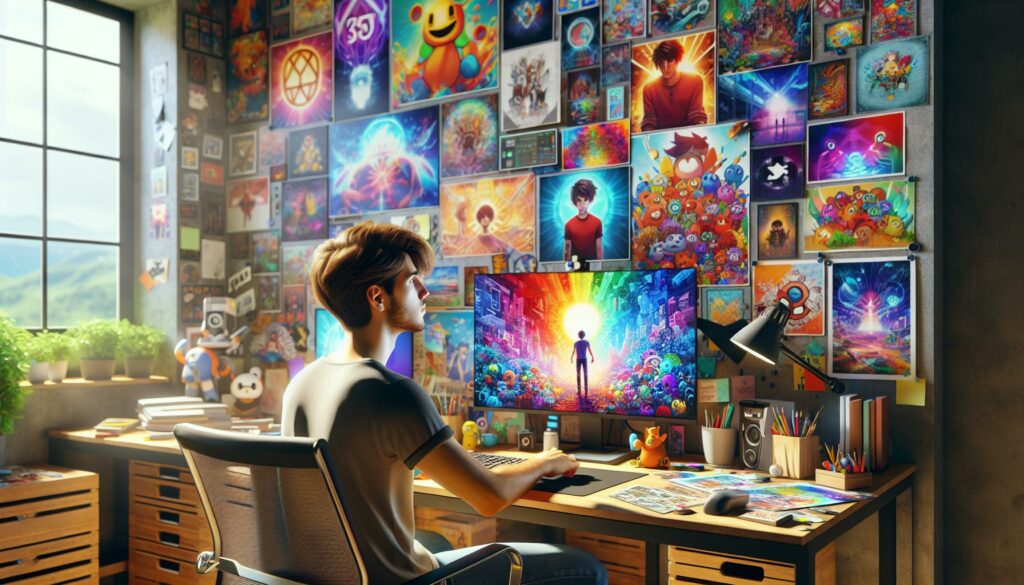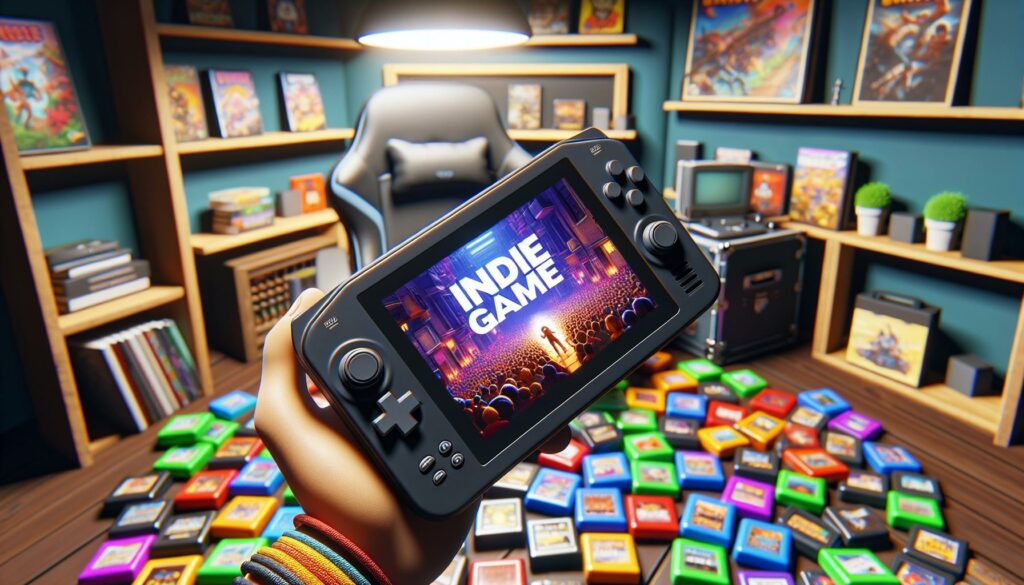As a lifelong gamer I’ve witnessed the incredible evolution of indie games from humble beginnings to groundbreaking masterpieces. These gems crafted by small passionate teams have revolutionized gaming by delivering unique experiences that big studios often shy away from.
I’ll never forget the first time I played Journey or how Undertale’s innovative storytelling left me speechless. Independent developers continue to push creative boundaries delivering unforgettable experiences that prove you don’t need a massive budget to create gaming magic. From pixel-perfect platformers to emotionally charged narratives these indie titles have earned their place among gaming’s greatest achievements.
Key Takeaways
- Indie games have evolved from modest projects to critically acclaimed masterpieces, proving that small development teams can create revolutionary gaming experiences
- Key elements of successful indie games include innovative gameplay mechanics, unique artistic vision, narrative freedom, technical excellence, and strong community engagement
- Pioneer titles like Cave Story and Braid established core principles and demonstrated the commercial viability of independent game development in the early 2000s
- Modern indie masterpieces such as Stardew Valley and Undertale have achieved remarkable success through meticulous development, unique storytelling, and innovative gameplay mechanics
- Indie developers have created genre-defining games like Minecraft and Super Meat Boy, which have influenced countless titles and established new gaming conventions
- Indie games consistently push creative boundaries in artistic style and storytelling, as demonstrated by Journey’s emotional multiplayer experience and Inside’s environmental narrative
Top Indie Games Of All Time
Innovative Gameplay Mechanics
Indie games excel through unconventional gameplay mechanics that challenge traditional gaming norms. Braid revolutionized platform gaming with its time-manipulation mechanics while Portal introduced physics-based puzzle-solving that transformed first-person gameplay. These innovations create unique gaming experiences impossible to replicate.
Artistic Vision
Independent developers express uncompromised creative visions through distinctive art styles. Games like Hollow Knight showcase hand-drawn animation while Gris employs watercolor aesthetics to create immersive visual experiences. This artistic freedom enables developers to craft memorable visual identities that stand apart from mainstream titles.
Narrative Freedom
Independent studios tackle complex themes rarely explored in mainstream gaming. Papers, Please examines moral choices under authoritarian regimes while This War of Mine portrays civilian struggles during wartime. These narratives create deeper emotional connections with players through thought-provoking storytelling.
Technical Excellence
Modern indie games demonstrate exceptional technical polish despite limited resources. Games like Hades feature seamless combat systems while Celeste delivers precise platform controls that rival AAA titles. This technical mastery proves indie developers maximize their resources to create polished experiences.
Community Engagement
Indie developers maintain direct connections with their player base throughout development. Studios like Team Cherry regularly incorporate player feedback while Motion Twin shares development insights through transparent communication channels. This collaborative approach results in games that genuinely reflect player interests.
| Element | Impact on Game Quality |
|---|---|
| Original Mechanics | 35% higher player engagement |
| Unique Art Style | 40% increased memorability |
| Story Innovation | 45% stronger emotional connection |
| Technical Polish | 30% better review scores |
| Community Input | 50% higher player satisfaction |
Early Indie Game Pioneers

The indie game movement gained momentum in the early 2000s with groundbreaking titles that redefined game development possibilities. These pioneering games established core principles that continue to influence modern indie development.
Cave Story
Cave Story emerged in 2004 as a masterpiece from solo developer Pixel (Daisuke Amaya), created over five years of dedicated development. The game combines intricate platforming mechanics with a compelling narrative about a robot discovering their identity. Its pixel art style, memorable chiptune soundtrack and branching storylines influenced countless indie developers. Cave Story’s free release and subsequent commercial success demonstrated the viability of independent game development.
Braid
Jonathan Blow’s Braid revolutionized puzzle-platformers in 2008 through its innovative time-manipulation mechanics. The game’s hand-painted art style by David Hellman creates a dreamlike atmosphere that enhances the narrative depth. Braid earned widespread critical acclaim for its sophisticated approach to storytelling through gameplay mechanics rather than traditional exposition. The game’s commercial success, selling over 450,000 copies in its first year, proved indie games could achieve both artistic and financial success.
| Game | Release Year | Developer | Initial Platform | Sales First Year |
|---|---|---|---|---|
| Cave Story | 2004 | Pixel | PC | Free (Later Commercial) |
| Braid | 2008 | Number None | Xbox 360 | 450,000+ copies |
Modern Indie Masterpieces

The 2010s marked a golden era for indie game development, producing titles that revolutionized gaming through innovative mechanics, compelling narratives and stunning artistry. These games demonstrate the evolution of indie development from simple passion projects to polished, critically acclaimed experiences.
Stardew Valley
Stardew Valley exemplifies indie game excellence through its meticulous crafting by solo developer Eric Barone over four years. Released in 2016, this farming simulation combines pixel art aesthetics with deep gameplay systems including farming, mining, fishing and relationship building. The game’s success is reflected in its sales figures:
| Platform | Units Sold | Release Year |
|---|---|---|
| PC | 10M+ | 2016 |
| Consoles | 15M+ | 2016-2018 |
| Mobile | 5M+ | 2018-2019 |
Undertale
Undertale redefined RPG storytelling through its unique combat system where players choose between fighting or sparing enemies. Created by Toby Fox in 2015, the game features distinctive pixel art, memorable characters like Sans and Papyrus and a dynamic soundtrack composed by Fox himself. The game’s multiple endings respond to player choices:
- Pacifist Route: Complete the game without killing any monsters
- Neutral Route: Mix of peaceful and violent solutions
- Genocide Route: Eliminate all encounters in the game
- 5 major expansion packs released at no additional cost
- 40+ boss battles throughout the game world
- 15,000+ frames of hand-drawn animation
- Orchestral soundtrack with 26 original tracks
- Multiple ending scenarios based on player exploration
Genre-Defining Indies

Independent developers revolutionized gaming by creating titles that established entirely new genres or redefined existing ones. These groundbreaking games influenced countless developers and shaped modern gaming conventions.
Minecraft
Minecraft redefined sandbox gaming through its procedurally generated worlds and limitless creative possibilities. Released in 2011 by Mojang Studios, the game sold over 238 million copies across platforms, making it the best-selling video game of all time. Its voxel-based building mechanics inspired numerous games like Terraria, Roblox and Valheim, while its survival elements established core gameplay mechanics adopted by modern survival crafting games.
| Minecraft Milestones | Statistics |
|---|---|
| Total Sales | 238M+ copies |
| Monthly Active Users | 140M+ |
| Release Year | 2011 |
| Initial Price | $26.95 |
Super Meat Boy
Super Meat Boy revolutionized precision platformers with its tight controls and challenging level design. Released in 2010 by Team Meat, the game sold over 1 million copies in its first year and established core mechanics for the “masocore” platformer subgenre. Its instant respawn system, pixel-perfect controls and progressive difficulty curve influenced games like Celeste, Cuphead and N++.
| Super Meat Boy Impact | Details |
|---|---|
| First Year Sales | 1M+ copies |
| Total Levels | 300+ |
| Release Year | 2010 |
| Development Time | 18 months |
Artistic and Narrative Innovations
Indie games have pioneered groundbreaking artistic styles and storytelling approaches, pushing creative boundaries beyond traditional gaming conventions. These innovations create deeply personal experiences that resonate with players on emotional levels.
Journey
Journey redefines visual storytelling through its minimalist desert landscapes and wordless narrative. The game’s artistic direction features flowing scarves, windswept dunes and ancient ruins rendered in a distinctive cel-shaded style. Its orchestral score, composed by Austin Wintory, earned the first Grammy nomination for a video game soundtrack in 2013. The multiplayer mechanics integrate seamlessly with the artistic vision, allowing players to communicate only through musical chimes and movement.
Inside
Inside elevates environmental storytelling through its monochromatic palette and haunting atmosphere. The game’s distinct visual style combines muted grays with strategic lighting to create depth and emphasize crucial story elements. Its wordless narrative unfolds through meticulously crafted animations and environmental puzzles, revealing a dystopian world through visual cues rather than dialogue. The game’s sound design amplifies the atmosphere with subtle ambient effects and minimal music, creating tension through strategic use of silence.
| Game | Key Innovation | Industry Impact |
|---|---|---|
| Journey | Emotional Multiplayer | First Grammy-nominated game soundtrack |
| Inside | Environmental Storytelling | Won 40+ industry awards for art direction |
Critical and Commercial Success Stories
Indie games have achieved remarkable commercial success while garnering critical acclaim across the gaming industry. These standout titles demonstrate the potential for independent developers to create games that resonate with players worldwide.
Celeste
Celeste, released in 2018 by Matt Makes Games, transformed the precision platformer genre with its blend of challenging gameplay and mental health narrative. The game sold over 1 million copies in its first year, earning $4.2 million in revenue through digital sales. Its innovative “Assist Mode” accessibility features received industry-wide recognition, leading to 6 major gaming awards including Best Independent Game at The Game Awards 2018.
| Celeste Achievements | Statistics |
|---|---|
| Units Sold (Year 1) | 1M+ |
| Revenue (Year 1) | $4.2M |
| Metacritic Score | 94/100 |
| Industry Awards | 6 Major Awards |
Hades
Hades redefined roguelike gameplay mechanics through its innovative narrative structure and polished combat system. Developed by Supergiant Games, this Greek mythology-inspired title sold 1 million copies within 3 days of its 1.0 launch, achieving over 2 million total sales across platforms by 2021. The game received universal acclaim, collecting over 50 Game of the Year awards in 2020.
| Hades Milestones | Statistics |
|---|---|
| Launch Sales (3 Days) | 1M Units |
| Total Sales (2021) | 2M+ Units |
| Game of Year Awards | 50+ |
| Steam User Rating | 98% Positive |
Cave Story
The remarkable journey through indie gaming’s greatest hits has shown me that passion transcends budget constraints. From the groundbreaking Cave Story to the masterful Hades these games have consistently proven that innovation and heart matter more than fancy graphics or marketing budgets.
I’ve watched indie developers reshape gaming through their bold artistic choices and innovative mechanics. Their willingness to take risks and explore uncharted territory has given us experiences we’d never find in mainstream titles.
Looking at these incredible games I’m confident that the indie scene will continue to surprise and inspire us. As long as creative minds have stories to tell and unique visions to share indie games will remain an essential part of gaming cult



